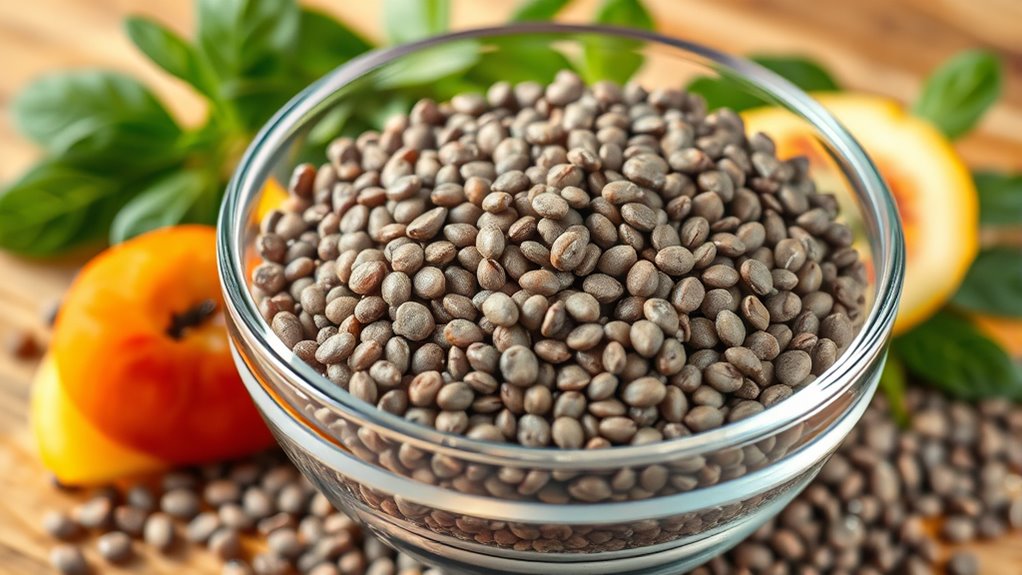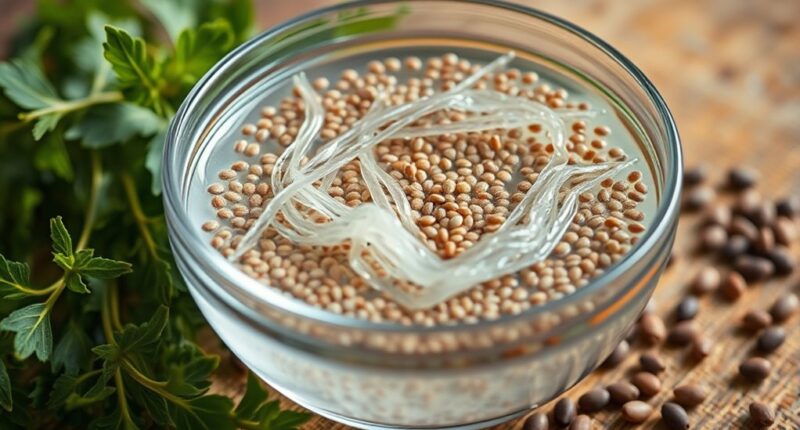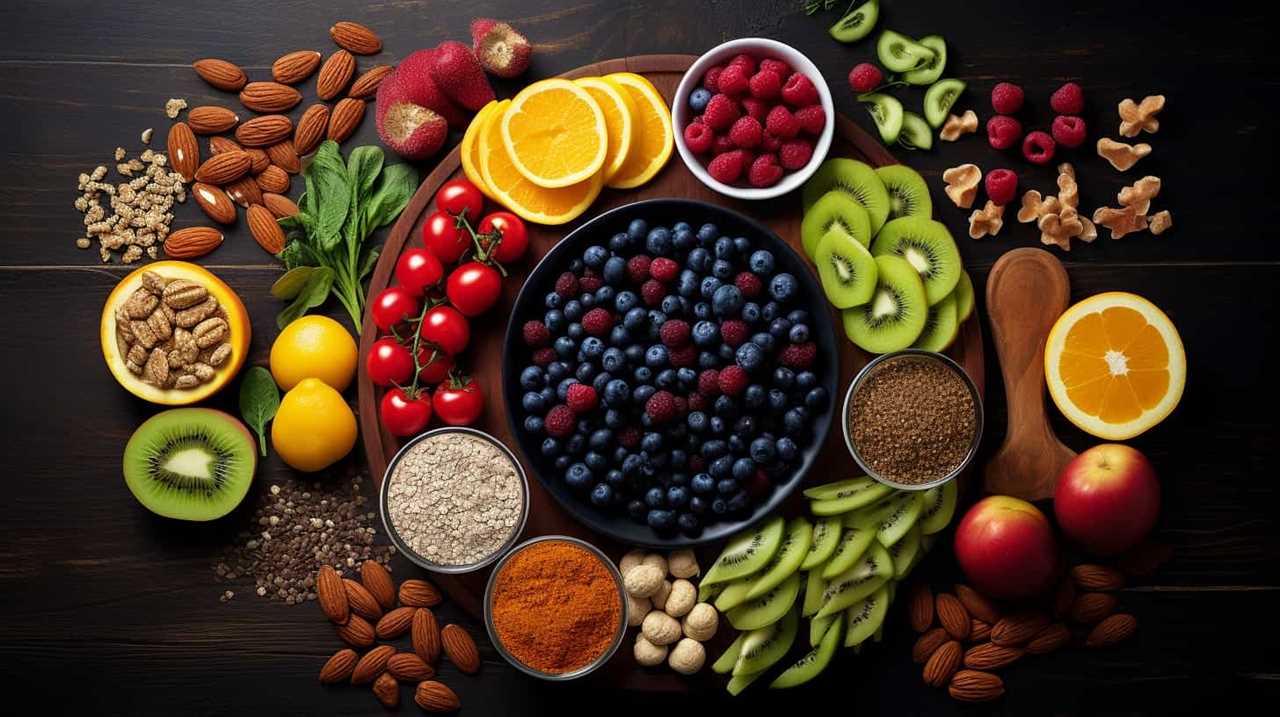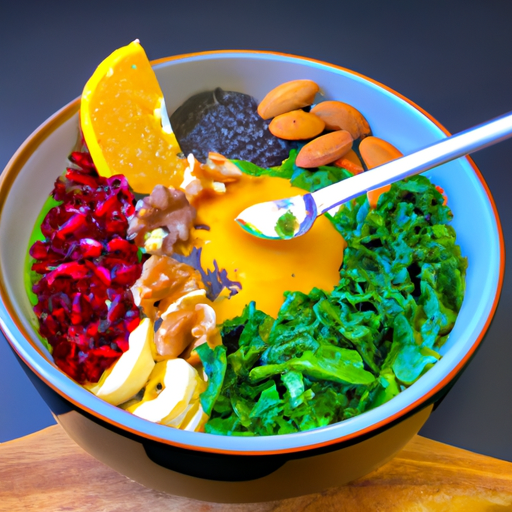Consuming soluble fiber from chia seeds feeds your beneficial gut bacteria, supporting a healthy microbiome. When you eat chia seeds, the soluble fiber is fermented by your microbiota into short-chain fatty acids (SCFAs), which nourish your intestinal lining and reduce inflammation. This process boosts microbiome diversity, making your gut more resilient and improving digestion. Keep going to discover how this simple addition can considerably enhance your overall health and well-being.
Key Takeaways
- Soluble fiber in chia seeds serves as prebiotic food that nourishes beneficial gut bacteria.
- Fermentation of chia’s soluble fiber produces short-chain fatty acids (SCFAs), vital for gut health.
- SCFAs support intestinal lining, reduce inflammation, and boost immune function.
- Increased microbial diversity from chia intake enhances gut resilience and resistance to pathogens.
- Regular consumption of chia seeds helps improve digestion and promotes a healthy, balanced microbiome.

Have you ever wondered how your gut bacteria influence your health? The answer lies in the complex ecosystem residing in your digestive system, known as the gut microbiome. This community of trillions of microorganisms plays an essential role in digestion, immune function, and even mood regulation. One of the most effective ways to nourish these beneficial bacteria is by consuming foods rich in soluble fiber, such as chia seeds. When you include chia seeds in your diet, you’re not just adding a versatile ingredient; you’re supporting your microbiota in meaningful ways.
Soluble fiber in chia seeds acts as a prebiotic, meaning it serves as food for the good bacteria in your gut. These prebiotic benefits are key because they help promote the growth of beneficial microbes, which in turn can improve overall health. As your microbiota digests soluble fiber, it ferments the fiber into short-chain fatty acids, like butyrate, acetate, and propionate. These compounds nourish your intestinal lining, reduce inflammation, and support immune function. The more diverse your microbiota, the better it can adapt to different foods and resist harmful pathogens. Chia seeds, with their high soluble fiber content, contribute considerably to increasing microbiota diversity, which is linked to a stronger, more resilient gut ecosystem.
Incorporating chia seeds into your meals is straightforward. You can sprinkle them on yogurt, add them to smoothies, or mix them into oatmeal. As they absorb liquid, chia seeds form a gel-like consistency that is not only satisfying but also enhances digestion. When you regularly consume chia seeds, you provide a steady supply of prebiotic fiber that encourages the growth of beneficial bacteria. This, in turn, can lead to better digestion, fewer bloating issues, and improved nutrient absorption. Over time, a diverse microbiota becomes more capable of producing essential vitamins and maintaining a balanced immune response. Understanding dream symbols can offer insights into your subconscious feelings about health and well-being, reflecting how your mind processes your physical and emotional states.
Frequently Asked Questions
Can Chia Seeds Help With Specific Gut Health Conditions?
Chia seeds can positively impact your gut health by providing soluble fiber, which promotes digestive relief and enhances microbiome diversity. This fiber acts as food for beneficial bacteria, helping to maintain a balanced gut environment. Incorporating chia seeds into your diet may alleviate issues like constipation and support overall digestive function, making them a useful addition for those aiming to improve gut health and foster a resilient microbiome.
How Much Soluble Fiber From Chia Seeds Is Recommended Daily?
When it comes to your daily fiber intake, there’s no one-size-fits-all, but generally, aim for about 25-30 grams daily. For chia seeds, a typical dosage is around 1 to 2 tablespoons, which provides roughly 5 grams of soluble fiber. This amount helps support digestion and promotes good bacteria. Remember, start slow and increase your chia seed dosage gradually to prevent any tummy troubles.
Are There Any Risks to Consuming Too Much Chia Fiber?
You might wonder if eating too much chia fiber poses risks. While fiber overconsumption can cause digestive discomfort, it’s unlikely to be dangerous in moderation. Overdoing it may lead to bloating, gas, or constipation, especially if your body isn’t used to high fiber intake. To avoid issues, gradually increase your chia seed consumption and stay well-hydrated. Listen to your body’s signals and consult a healthcare professional if needed.
Do Chia Seeds Affect Gut Bacteria Differently Than Other Fibers?
Chia seeds do affect gut bacteria differently than other fibers because they promote fiber diversity, which supports a more robust bacterial diversity in your gut. Unlike some fibers that mainly feed specific bacteria, chia seeds contain soluble fiber that nurtures a wider range of good bacteria. This variation helps improve overall gut health, digestion, and immunity, making chia seeds a unique and beneficial addition to your diet for maintaining a balanced microbiome.
How Long Does It Take to See Gut Health Improvements After Eating Chia?
Think of your gut as a garden, taking time to flourish. You might notice improvements in gut health within a few days to a few weeks of eating chia seeds. As fiber digestion occurs, it promotes microbiome diversity, feeding good bacteria. Consistent intake helps nurture your gut environment, so patience and regularity are key to seeing meaningful changes in your digestive comfort and overall health.
Conclusion
By now, you see how soluble fiber in chia seeds acts like a nourishing tide, fueling your gut’s good bacteria. When you include these tiny seeds in your diet, you’re planting seeds of health that grow stronger with every meal. Think of your gut as a thriving garden—feeding it with fiber helps your good bacteria flourish, leading to better digestion and overall well-being. Embrace chia seeds, and watch your gut bloom like a vibrant, healthy spring.









